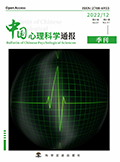

如何建立健全的心理育人体系, 一直是教育领域的重要课题。其中, 童年不良经历 (adverse childhood experiences, ACEs) 是全球普遍存在的公共卫生问题, 也是导致青少年出现心理或行为问题的重要因素。因此, 如何提高青少年心理韧性和整体健康水平对于推动教育强国建设至关重要。在积极心理科技视域下, 基于交互科技的自助式虚拟韧性培育方法是有效改善ACEs青少年心理困境的关键所在。鉴于此, 本文结合数字交互技术和青少年群体的心理发展特点, 结合基于CiteSpace的文献考古和相关文献溯源, 为ACEs群体的心理健康教育提供相应路径遵循。研究发现, 情感支持、认知行为干预、个性化心理服务是改善ACEs青少年心理问题的关键, 而数字心理App的普及同样可以有效提升心理干预的可及性与有效性。本研究旨在为ACEs群体心理援助体系提供参照, 从而更好满足青少年不同种类不同层次的心理援助需求。
How to establish a sound psychological education system has always been an important issue in the field of education. Adverse childhood experiences (ACEs) , as a globally prevalent public health concern, represent a significant factor contributing to psychological and behavioral issues among adolescents. Consequently, enhancing adolescents' psychological resilience and overall well-being is paramount for advancing the development of an education-oriented nation. Within the framework of Positive Psychological Technology, self-guided virtual resilience cultivation methods leveraging interactive technologies emerge as pivotal solutions for effectively addressing the psychological challenges faced by adolescents with ACEs. This study therefore integrates digital interactive technologies with the psychological developmental characteristics of adolescent populations, employing CiteSpace-based literature archaeology and systematic source tracing to delineate actionable pathways for mental health education targeting the ACEs cohort. Key findings indicate that emotional support, cognitive-behavioral interventions, and personalized psychological services are essential for ameliorating psychological difficulties in ACEs-affected youth, while the proliferation of digital mental health applications substantially enhances the accessibility and efficacy of psychological interventions. The aim of this study is to provide a reference for the ACEs group psychological assistance system, in order to better meet the different types and levels of psychological assistance needs of adolescent.